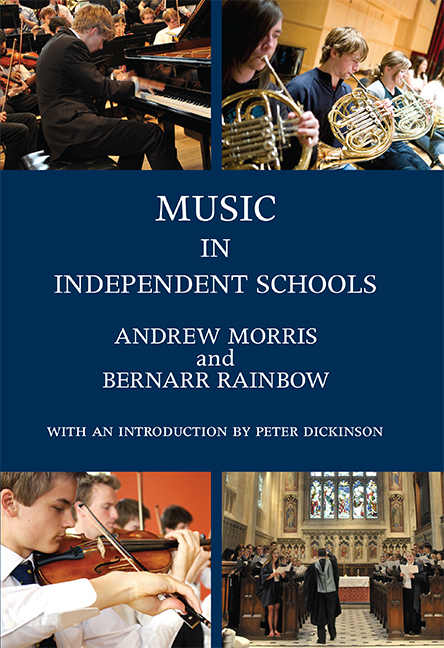Book contents
- Frontmatter
- Contents
- List of Plates
- General Editor's Foreword
- Editor's Introduction
- Biographical Notes
- List of Abbreviations
- PART I Studies from Music and the English Public School (1990)
- PART II The New Millennium
- SOME INDEPENDENT SCHOOLS IN THE NEW MILLENNIUM
- 1 Bedford
- 2 Dulwich
- 3 Eton
- 4 Gresham's
- 5 St Paul's
- 6 Uppingham
- 7 Worksop
- FURTHER TRADITIONS
- ORGANISATIONS
- Index
- Appendix
4 - Gresham's
from SOME INDEPENDENT SCHOOLS IN THE NEW MILLENNIUM
Published online by Cambridge University Press: 05 October 2014
- Frontmatter
- Contents
- List of Plates
- General Editor's Foreword
- Editor's Introduction
- Biographical Notes
- List of Abbreviations
- PART I Studies from Music and the English Public School (1990)
- PART II The New Millennium
- SOME INDEPENDENT SCHOOLS IN THE NEW MILLENNIUM
- 1 Bedford
- 2 Dulwich
- 3 Eton
- 4 Gresham's
- 5 St Paul's
- 6 Uppingham
- 7 Worksop
- FURTHER TRADITIONS
- ORGANISATIONS
- Index
- Appendix
Summary
Like many schools, Gresham's School in Holt, Norfolk, has been fortunate to experience some fine educators over the course of its existence. Through the strengths of their beliefs, the broad scope of their activities, and their desire to make music known, understood, and enjoyed by all, the music masters and mistresses at Gresham's have enriched the lives of many students, parents, colleagues, and friends of the school. During the twentieth century the school has had its fair share of talented pupils pass across the Parade Ground, but it is the ethos of ‘bringing out the best in every child’ that remains a truer philosophy and reflects the nature of its everyday musical activities.
1900–10: The Shaw Years
In 1900 George Howson, a scientist, was appointed headmaster of Gresham's. Musically he was no practitioner, but he saw value in the arts and ensured well-staffed departments with the finest teachers. As an early Director of Music at the school, Geoffrey Shaw, once remarked, ‘his conviction that the humanities must form an essential part of education made it possible for music to flourish at Gresham's. No music master ever had a truer friend in his headmaster.’
In 1900 a small school choir existed and public concerts were given under the guidance of classics master R. Langford James. Concerts were regularly given in Great School, with members of staff usually providing the main body of the programmes.
- Type
- Chapter
- Information
- Music in Independent Schools , pp. 268 - 276Publisher: Boydell & BrewerPrint publication year: 2014

